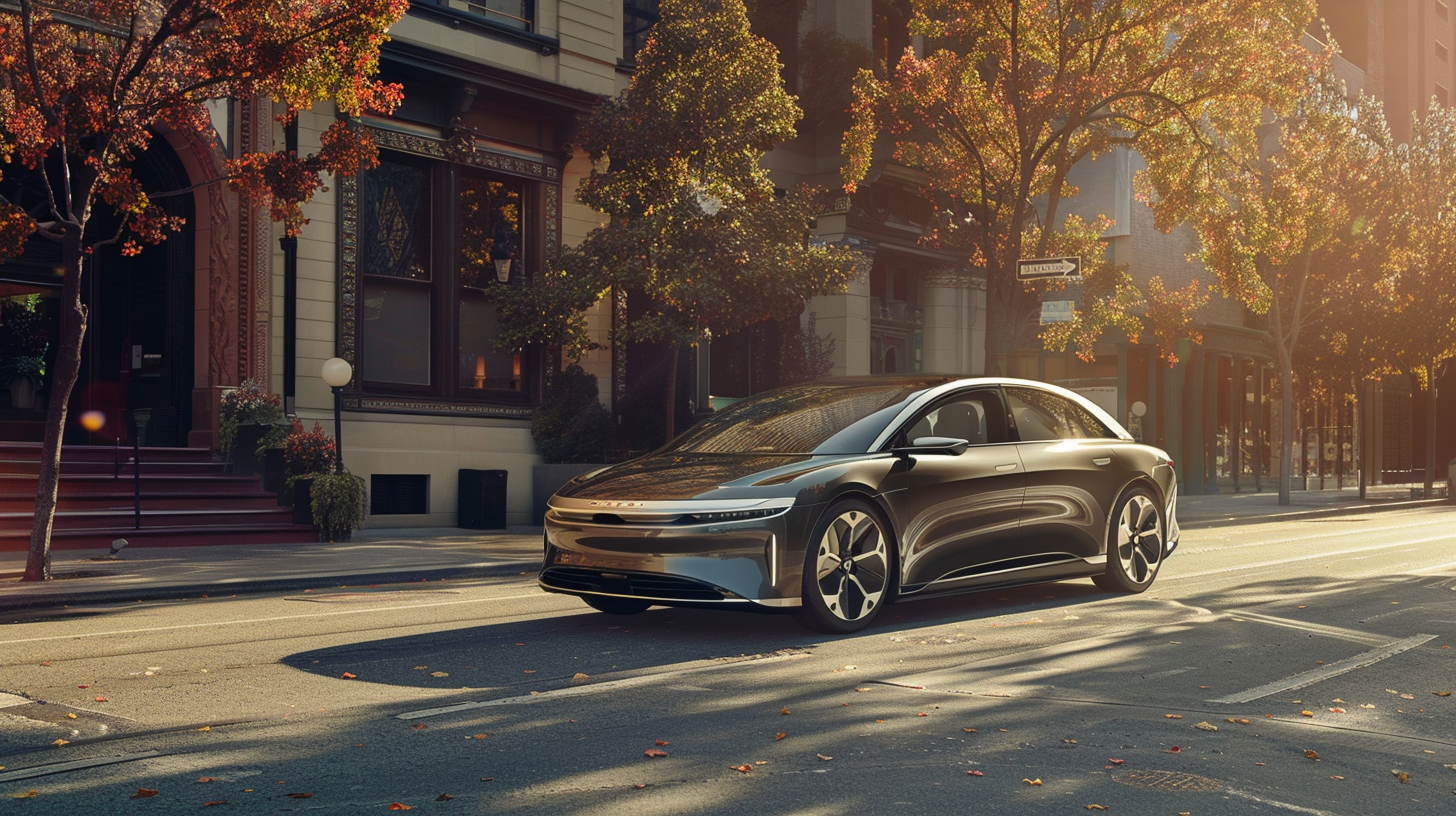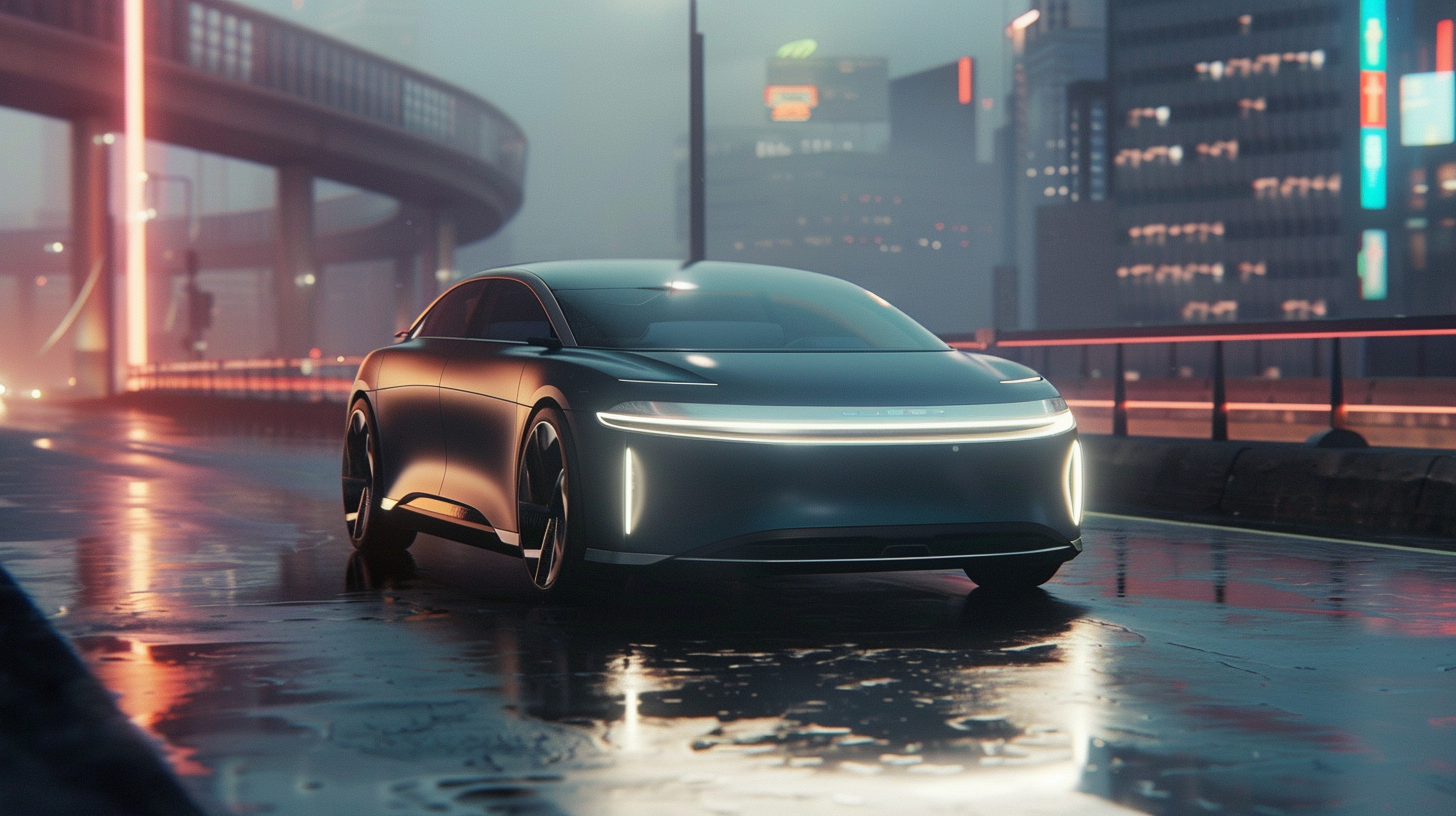Uber is taking a bold step into the future of mobility with a newly announced six-year, $300 million partnership aimed at deploying more than 20,000 autonomous electric vehicles across the United States. The ride-hailing giant has partnered with luxury electric vehicle manufacturer Lucid and autonomous driving startup Nuro to bring a custom-built fleet of robotaxis to the streets starting next year.
The deal, revealed Thursday, signals Uber’s deeper push into self-driving technology, a space that has seen accelerating momentum in recent years. As part of the agreement, Uber will invest $300 million in Lucid, helping to fund the development of a new line of electric vehicles designed specifically for autonomous ride-hailing. Nuro, known for its robotics expertise and backed by investors like Google and SoftBank’s Vision Fund, will supply the Level 4 autonomous driving software that powers these vehicles.
Under the terms of the partnership, Lucid will manufacture and supply at least 20,000 robotaxis to Uber over the next six years. These vehicles will be equipped with Nuro’s full-stack self-driving system, capable of handling everyday driving without human intervention under typical conditions. Testing of the first prototype is already underway at Nuro’s proving grounds in Las Vegas, where the vehicles are being refined in preparation for public deployment.
The companies expect the program to launch in a major U.S. city in 2026, though they have not yet disclosed which one. The initiative builds on Uber’s recent expansion with Alphabet-backed Waymo, which brought self-driving ride services to cities like Atlanta and Austin earlier this year. With the new Lucid-Nuro partnership, Uber is doubling down on its long-term strategy to integrate more fully autonomous vehicles into its platform.
Lucid’s role is particularly significant, as the company brings to the table its EV engineering and range capabilities. Its upcoming Gravity SUV, which boasts a 450-mile battery range, will serve as the initial vehicle platform for the robotaxi fleet. This extended range is expected to reduce charging downtime and lower operating costs, while also increasing vehicle availability on the Uber platform.
Nuro described the agreement as a scalable model for commercial robotaxi programs worldwide. With significant investment from top-tier venture capital firms and an extensive R&D history in autonomous systems, Nuro is positioning itself as a key player in next-generation transportation infrastructure.
Lucid, for its part, sees this partnership as a strategic move into a new, high-growth segment of the EV market. While traditionally focused on luxury electric sedans and SUVs, the company is now expanding into fleet-based mobility services, opening the door to recurring revenue through large-scale partnerships.
Together, the three companies aim to create a purpose-built robotaxi experience that blends safety, efficiency, and advanced EV design. As Uber continues to diversify beyond its traditional driver-based model, this alliance marks a major step toward a more autonomous and electrified future of urban mobility.

